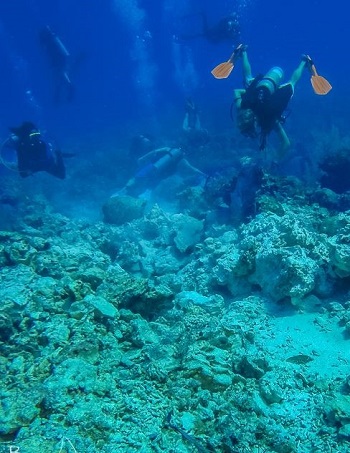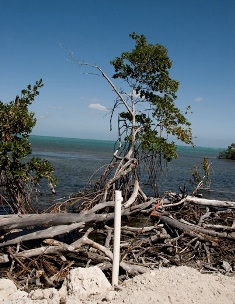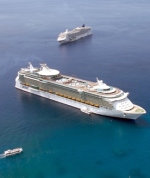Archive for September, 2014

Elmslie: No Sunday shopping
 (CNS): Members of Grand Cayman’s oldest church have expressed concerns publicly about government’s plans to lift the Sunday shopping ban. In an open letter Dr Dave Hazle of the Elmslie Memorial United Church has set out some of his congregation’s concerns that trading on Sundays will not bring about the economic benefits expected and will see an exploitation of workers. They are concerned about Cayman losing its one quiet restful and relaxing day as well as the traditional Sunday lunch family get together. Holding Sunday special for resting, recreation, family or religious observance is an important part of Cayman culture worth saving, the church leader said.
(CNS): Members of Grand Cayman’s oldest church have expressed concerns publicly about government’s plans to lift the Sunday shopping ban. In an open letter Dr Dave Hazle of the Elmslie Memorial United Church has set out some of his congregation’s concerns that trading on Sundays will not bring about the economic benefits expected and will see an exploitation of workers. They are concerned about Cayman losing its one quiet restful and relaxing day as well as the traditional Sunday lunch family get together. Holding Sunday special for resting, recreation, family or religious observance is an important part of Cayman culture worth saving, the church leader said.
In the church’s submission on the government’s proposal for the liberalisation of the Sunday trading laws, Hazle said there was no guarantee that the change would increase economic activity as the same amount of money may simply be spent over seven instead of six days. With the fast-food chain Chick-Fil-A, known for its strict closed-on-Sunday policy,making greater profits with fewer stores than KFC, the minister said Sunday trading is no guarantee of economic benefits.
Pointing to the dangers of lower paid workers being exploited and forced to work longer hours without the benefit of overtime, the minister said liberalization could increase discrimination against workers who don’t want to work on Sundays. Government’s promise of protection for employees against discrimination gave little comfort, he added.
“Given the current rate at which labour matters are dealt with we have little confidence that such discrimination will be properly policed and the rights of workers protected. Both expatriate workers and Caymanians who do not want to work on Sundays could be vulnerable to such discrimination,” Hazel said.
The church leader also said that having a designated day when commercial activity is limited promotes rest and relaxation as well as making family interaction more likely to happen, but changes in the law could undermine local culture.
“The practice of families gathering for Sunday lunch, which has been an important part of Cayman culture, could become a thing of the past,” he warned as he noted the articulation of Christian values in the country’s constitution. “Sunday trading has repercussions way beyond the religious,” said Hazle.
While Elmslie is the first church to circulate its position in writing during this latest public discussion period on the subject, it is by no means the first or only church to raise objections to the proposal to life the Sunday trading ban.
The consultation period initiated by the finance ministry was expected to close Wednesday evening and a summary of the consultation results will then be prepared for Cabinet.
Officials said that any legislative changes to emerge as a result of the consultation would not come into effect before the 4th quarter of this year and any changes made will be reviewed one year after implementation.
Government has cited a number of reasons behind the proposal to lift the ban, not least to allow competition between all retailers as the laws currently allow some but not others to open. It has also said Sunday shopping will improve consumer choice, with access to the same variety of goods on a weekday and increase convenience to consumers as well as provide job opportunities for those who want to work on a Sunday. The ministry also hopes it will maximise efficiency and productivity across the whole retail sector, reduce congestion and queuing as well as reducing waste for retailers selling perishable goods.
Although religious factors were expected to influence the debate, and the churches represent the majority of the opposition to the proposal, the growth of Seventh Day Adventists in Cayman is also a consideration, as the current situation discriminates against that group, as well as other religions holding a day other than Sunday as Sabbath.
See full letter from the Elmslie church below.

Local divers begin work on crushed reef
 (CNS): Although it will take decades, if it works at all, local divers have begun the daunting task of attempting to repair almost 12,000 square feet of severely damaged coral reef in George Town harbour. The reef was crushed by some 450 feet of chain, weighing as much as 100lbs, when the Carnival Magic cruise ship dropped its anchor on the dive site in August. Around 50 volunteers have teamed up with the Department of Environment (DoE) and have begun carefully removing the rubble, dead coral and sediment, crate by crate. Divers say the damage is extensive and described as “just terrible”, with thousands of years of coral growth demolished by an error of judgment. (Photo by Len de Vries and Nina Baxa).
(CNS): Although it will take decades, if it works at all, local divers have begun the daunting task of attempting to repair almost 12,000 square feet of severely damaged coral reef in George Town harbour. The reef was crushed by some 450 feet of chain, weighing as much as 100lbs, when the Carnival Magic cruise ship dropped its anchor on the dive site in August. Around 50 volunteers have teamed up with the Department of Environment (DoE) and have begun carefully removing the rubble, dead coral and sediment, crate by crate. Divers say the damage is extensive and described as “just terrible”, with thousands of years of coral growth demolished by an error of judgment. (Photo by Len de Vries and Nina Baxa).
“Right now it’s basic triage, and any live corals are being put aside for reattachment once the rubble is removed,” Ocean Frontiers’ Lois Hatcher told dive news reporter, Adela Gonzales White. “Every day that goes by, more coral that is buried or heavily covered in sediment is suffocating. They need sunlight and a stable substrate to survive, so the longer they are unstable, the survival rate decreases.”
She explained that a lot of man-hours will be needed to restore the reef, starting with the triage stage to clean things up before efforts at reattachment and then maintenance, which could take more than a year to complete.
“We are also hoping to start a couple of nursery trees for the long-term keeping of live coral fragments, as they grow faster this way andcan then be used to embellish what coral was replanted.”
While an investigation into the Carnival Magic incident is conducted, the repair work at the site continues non-stop. To date more than a 20 dives have been made and volunteers have put in 150 man-hours. Communication and coordination are done through a Facebook page that now has 265 followers. Boat trips are scheduled and volunteers, both locals and visitors, can sign up to help.
Hatcher said it was important work and if nobody is going to be held accountable for the damage, then they must be accountable.
In 1996 a coral restoration project began to try and repair the damage caused by the Maasdam cruise ship when it dropped anchor on a shallow dive site in George Town damaging 7,500 square feet of reef. That project took over 9,000 hours of underwater work over three months. DoE experts have said that site could still take sixty years to grow back. The most recent cruise ship damage was over a considerably larger area and in deeper water, presenting divers with a near impossible task.
Along with the experienced divers who worked on that project joining the current team, Keith Sahm from Sunset Divers, who organised the volunteers, said the Marine Conservation Board has also eased the guidelines and laws about touching or picking up coral to allow the work to go ahead.
The restoration work is difficult and the dive site won’t be what it was originally but the divers hope to make the reef stable enough to sustain life again.
Following a meeting Monday the DoE said the results were encouraging and progress has been made but the project needs more volunteers. Anyone interesting in helping is asked to visit the Facebook page Cayman Magic Reef Recovery where volunteer dives and updates are continually posted.

NVCO needs to raise $140k to keep projects going
 (CNS): One of Cayman’s leading not for profit organisations that focuses on the care, education and well –being of children and families in need of support is getting ready for its annual fundraiser and needs to raise $140,000 to pay for its projects. Each year the NCVO holds a Radio/Telethon for the money needed to run the Nadine Andreas Residential Foster Home, Miss Nadine’s Pre-school, the Jack and Jill Nursery, the John R Gray Memorial Fund and the Caring Cousins Lunch Support Programme. The NCVO relies heavily on this event for the cash to take care of the increasing number of children in real need, right here in Cayman.
(CNS): One of Cayman’s leading not for profit organisations that focuses on the care, education and well –being of children and families in need of support is getting ready for its annual fundraiser and needs to raise $140,000 to pay for its projects. Each year the NCVO holds a Radio/Telethon for the money needed to run the Nadine Andreas Residential Foster Home, Miss Nadine’s Pre-school, the Jack and Jill Nursery, the John R Gray Memorial Fund and the Caring Cousins Lunch Support Programme. The NCVO relies heavily on this event for the cash to take care of the increasing number of children in real need, right here in Cayman.
Despite the country's exceptionally high standard of living many children across the islands are going hungry or are in need of care, protection and support. But battling like many other charities to get the money it needs to keep the essential programmes going, the chairman and chief executive officer said the NCVO is dependent upon the generosity of the business community, trusts, and individuals and the hope is that the support will continue, particularly given the very tough economic times.
With the increasing needs throughout the community the charity hopes to raise CI$140,000 to help to fund the projects which in turn allows us to support hundreds of children and community members every year.
This year the evening’s entertainment extravaganza, made possible by local musicians who donate their time and perform for free, will be held on Saturday 25 October at 7pm onwards at the Prospect Playhouse and broadcast live on Cayman 27 and Radio Cayman.
All donors and those pledging support can donate live during the event or they can be made ahead of the televised evening of entertainment at the NCVO Once a donation is received it will be recorded and pledges will be announced on the evening of the event unless donors wish to remain anonymous.
For more information about the NCVO programmes, visit website: www.ncvo.org.ky and to make a donation contact 949 2124 or send a cheque to the NCVO, P O Box 1140, Grand Cayman, KY1-1102.
See promo flyer below

Shetty hospital begins local stroke study
 (CNS): People aged 65 and over are being asked to take part in a health screening study which will be conducted by doctors at the new hospital in East End to protect against stroke or Atrial Fibrillation in the elderly population. Health City Cayman Islands is looking for over 3,000 people to take part and the free screenings will be taking place around the Cayman Islands throughout October. The tests are non-invasive and powered by an iPhone app that reads pulse vibrations. They will takes under 10 minutes to complete and will help Cayman’s older population become aware of their risk of having a stroke.
(CNS): People aged 65 and over are being asked to take part in a health screening study which will be conducted by doctors at the new hospital in East End to protect against stroke or Atrial Fibrillation in the elderly population. Health City Cayman Islands is looking for over 3,000 people to take part and the free screenings will be taking place around the Cayman Islands throughout October. The tests are non-invasive and powered by an iPhone app that reads pulse vibrations. They will takes under 10 minutes to complete and will help Cayman’s older population become aware of their risk of having a stroke.
The information from the screenings will be used to compile a history-making study, called the Cayman Islands Atrial Fibrillation for Elderly (CAFE) study, which is the first of its kind in the Cayman Islands and Caribbean, the hospital stated in a release this week about the planned medical research. The screening is expected to empower people so that they understand their own potential risk for having a stroke and make Cayman a leader in the region in stroke prevention, doctors said.
Dr Ravi Kishore, Chief Interventional Cardiologist and Electrophysiologist at Health City Cayman Islands, explained that many people do not show any outward signs that they have a higher stroke risk, hence the need for this important study.
“We will be screening for Atrial Fibrillation (Afib), otherwise known as arrhythmia, which is an abnormality of the rate or rhythm of the heart. It can beat too fast, too slow or in an irregular fashion. Often people don’t realise that they have Afib, but the condition needs to be diagnosed because it can lead to a stroke,” he said.
Dr Kishore explained that there are millions of people around the world with Afib, with 2010 estimated numbers globally running at 33.5 million for men and 12.6 million for women, so it is a huge problem world-wide. Major risk factors for developing Afib include; if a person is aged over 65, if they suffer from high blood pressure, if they have coronary artery disease, heart failure, valvular heart disease or congenital heart disease. Other risk factors include if a person suffers from sleep apnea, hyperthyroidism (too much thyroid hormone), obesity or diabetes. In addition, if they suffer from lung disease, have a family history of Afib or have a history of smoking and alcohol abuse, then they are more likely to suffer from Afib.
Dr Irka Ebanks, who will be leading the research study and screenings, said it was extremely important to screen people because AFib does not have obvious warning signs.
“When symptoms do occur, they often include palpitations, chest pain/tightness, dizziness, breathlessness, fatigue or lack of energy,” she said. “These symptoms do not always immediately indicate Afib, so screening people means patients themselves may be better equipped to understand the warning signs and at the same time we will have the information we need to help diagnose the condition in a more timely manner.
“Speed is of the essence in such a case: the sooner a patient receives medical care following a stroke the better the prognosis,” the doctor added.
For more information call 1 (345) 945-4040 or visit healthcity.ky
Related article on CNS Business:

UN: Rapid mangrove loss costing $ billions
 (CNS): The world is losing its mangroves at a faster rate than global deforestation, the United Nations has revealed in a new report pointing to billions of dollars in economic damage impacting millions of lives. The destruction of the coastal habitats is said to be three to five times faster than global forest loss resulting in $42billion losses annually and exposing ecosystems and coastal habitats to an increased risk of devastation from climate change. The report was launched Monday at the 16th Global Meeting of the Regional Seas Conventions and Action Plans, held in Greece, where the UN Environment Programme (UNEP) warned of the far reaching implications of the habitat loss. Although a global phenomenon the Cayman Islands has seen miles of its costal mangrove sacrificed in the name of development in recent years
(CNS): The world is losing its mangroves at a faster rate than global deforestation, the United Nations has revealed in a new report pointing to billions of dollars in economic damage impacting millions of lives. The destruction of the coastal habitats is said to be three to five times faster than global forest loss resulting in $42billion losses annually and exposing ecosystems and coastal habitats to an increased risk of devastation from climate change. The report was launched Monday at the 16th Global Meeting of the Regional Seas Conventions and Action Plans, held in Greece, where the UN Environment Programme (UNEP) warned of the far reaching implications of the habitat loss. Although a global phenomenon the Cayman Islands has seen miles of its costal mangrove sacrificed in the name of development in recent years
“The escalating destruction and degradation of mangroves – driven by land conversion for aquaculture and agriculture, coastal development, and pollution – is occurring at an alarming rate,” said UNEP Executive Director Achim Steiner who added that over a quarter of the earth’s original mangrove cover has gone.
“This has potentially devastating effects on biodiversity, food security and the livelihoods of some of the most marginalized coastal communities in developing countries, where more than 90 per cent of the world’s mangroves are found,” he added.
Steiner said mangroves – which are found in 123 countries around the world – provide ecosystem services worth up to $57,000 per hectare per year, storing carbon that would otherwise be released into the atmosphere and providing the over 100 million people who live in their vicinity with a variety of goods and services such as fisheries and forest products, clean water and protection against erosion and extreme weather events. He stressed that their continued destruction “makes neither ecological nor economic sense.”
As well as the economic problems posed by mangrove deforestation, the report, entitled The Importance of Mangroves: A Call to Action, also cautions that a continued reduction in the surface area of mangrove forests would inevitably expose coastal environments to the harmful effects of climate change.
In the Caribbean, mangrove-lined “hurricane holes” have functioned for centuries as safe-havens for boaters needing to ride out storms. The complex network of mangrove roots can also help reduce wave energy, limit erosion and form a critical barrier to the dangers posed by the strengthening tropical storms, cyclones and tsunamis which have been assailing coastal communities in recent years due to climate change.
In order to safeguard what UNEP calls “one of the most threatened ecosystems on the planet,” the report outlines a number of financial mechanisms and incentives designed to stimulate conservation, including the creation of a Global Mangrove Fund, encouraging mangrove conservation and restoration through carbon credit markets, and promoting economic incentives as a source of local income from mangrove protection, sustainable use, and restoration activities.
Steiner said it was important to spell out the need to preserve mangroves in real terms, underlining the economic impact their destruction has on the local and global communities.
“By quantifying in economic terms the value of the ecosystem services provided by mangroves as well as the critical role they play in global climate regulation, the report aims to encourage policymakers to use the tools and guidelines outlined to better ensure the conservation and sustainable management of mangroves.”

UN: Rapid mangrove loss costing $ billions
(CNS): The world is losing its mangroves at a faster rate than global deforestation, the United Nations has revealed in a new report pointing to billions of dollars in economic damage impacting millions of lives. The destruction of the coastal habitats is said to be three to five times faster than global forest loss resulting in $42billion losses annually and exposing ecosystems and coastal habitats to increased risk of devastation from climate change. The report launched Monday at the 16th Global Meeting of the Regional Seas Conventions and Action Plans, in Greece, the UN Environment Programme (UNEP) warned of the far reaching implications of the habitat loss. Although a global phenomenon, the Cayman Islands has seen miles of its costal mangrove sacrificed in the name of development in recent years.
“The escalating destruction and degradation of mangroves – driven by land conversion for aquaculture and agriculture, coastal development, and pollution – is occurring at an alarming rate,” said UNEP Executive Director Achim Steiner who added that over a quarter of the earth’s original mangrove cover hasgone.
“This has potentially devastating effects on biodiversity, food security and the livelihoods of some of the most marginalized coastal communities in developing countries, where more than 90 per cent of the world’s mangroves are found,” he added.
Steiner said mangroves – which are found in 123 countries around the world – provide ecosystem services worth up to $57,000 per hectare per year, storing carbon that would otherwise be released into the atmosphere and providing the over 100 million people who live in their vicinity with a variety of goods and services such as fisheries and forest products, clean water and protection against erosion and extreme weather events. He stressed that their continued destruction “makes neither ecological nor economic sense.”
As well as the economic problems posed by mangrove deforestation, the report, entitled The Importance of Mangroves: A Call to Action, also cautions that a continued reduction in the surface area of mangrove forests would inevitably expose coastal environments to the harmful effects of climate change.
Here, in the Caribbean, mangrove-lined “hurricane holes” have functioned for centuries as safe-havens for boaters needing to ride out storms. The complex network of mangrove roots can also help reduce wave energy, limit erosion and form a critical barrier to the dangers posed by the strengthening tropical storms, cyclones and tsunamis which have been assailing coastal communities in recent years due to climate change.
In order to safeguard what UNEP calls “one of the most threatened ecosystems on the planet,” the report outlines a number of financial mechanisms and incentives designed to stimulate conservation, including the creation of a Global Mangrove Fund, encouraging mangrove conservation and restoration through carbon credit markets, and promoting economic incentives as a source of local income from mangrove protection, sustainable use, and restoration activities.
Steiner said it was important to spell out the needto preserve mangroves in real terms, underlining the economic impact their destruction has on the local and global communities.
“By quantifying in economic terms the value of the ecosystem services provided by mangroves as well as the critical role they play in global climate regulation, the report aims to encourage policymakers to use the tools and guidelines outlined to better ensure the conservation and sustainable management of mangroves.”
See report below

Cruise line eyes bigger slice of the pie
 (CNS Business): Royal Caribbean’s ‘Double-Double Program’, a new three-year profitability initiative that aims to double earnings per share and increase the company’s return on capital to double-digits by 2017, may have a negative impact on cruise ports, including Grand Cayman, according to a Canadian academic who researches the cruise industry. Memorial University of Newfoundland Professor Ross Klein believes the initiative, which was announced during Royal Caribbean’s stockholders meeting in July, could impact cruise destinations because part of the strategy is to encourage on-board spending. Read more and comment on CNS Business
(CNS Business): Royal Caribbean’s ‘Double-Double Program’, a new three-year profitability initiative that aims to double earnings per share and increase the company’s return on capital to double-digits by 2017, may have a negative impact on cruise ports, including Grand Cayman, according to a Canadian academic who researches the cruise industry. Memorial University of Newfoundland Professor Ross Klein believes the initiative, which was announced during Royal Caribbean’s stockholders meeting in July, could impact cruise destinations because part of the strategy is to encourage on-board spending. Read more and comment on CNS Business
Cayman Prep reclaims opening rally title
(CUC-PFL): Cayman Prep successfully defended their 2013 Opening Rally title this past Saturday at the Annex Field with a hard-fought 1-0 victory over the always unpredictable Red Bay Primary in the final of the 2014 CUC Primary Football League (PFL) Opening Rally. Nathan Trickett was the hero on the day for the champions as he netted the winner in the semi-final against his former school St. Ignatius Prep in a 1-0 win and then bagged the winner in the final. His crucial goal and his performance in the final also earned him The Ronnie Roach Most Valuable Player Award. Contributing to the victory in the final was Cayman Prep’s goalkeeper Elliott Bishop who was outstanding between the posts. Young Mr. Bishop made two outstanding saves towards the end of the game to secure the win for his school.
The surprising Truth For Youth team claimed third-place defeating St. Ignatius Prep 2-0 in penalties after their game finished 0-0 after fulltime. This was the second year in a row that St. Ignatius Prep finished fourth.
Cayman Prep’sroad to the final began with a 4-1 win over South Sound School in Zone D coupled with a narrow 4-3 victory over Red Bay Primary in sudden death penalties (1-1 after fulltime; 2-2 after regular penalties; 1-0 after sudden death penalties). Red Bay defeated South Sound Schools 1-0 to finish second in the zone and advance to the quarter-finals.
Truth For Youth’s journey to the third-placed game began with 1-0 loss to St. Ignatius Prep in Zone B. The youngsters rallied to beat George Town Primary 1-0 and Boddeen Town Primary 4-3 in penalties (1-1 after fulltime; 3-2 after regular penalties) to finish runners-up in the Zone. St. Ignatius Prep won the zone after defeating Truth For Youth, Bodden Town Primary 2-1 and George Town Primary 2-0.
In Zone A, Cayman International School (CIS) advanced to the quarter finals with a 4-0 victory over Prospect Primary and a 3-1 win against Savannah Primary after penalties (1-1 after fulltime; 2-0 after regular penalties). Savannah Primary overcame the loss to zone winners CIS to beat Prospect Primary 3-0 and claim a spot in the quarter finals.
In Zone C, last year’s third-place finishers NorthEast School won the zone with a 1-0 victory over Cayman Brac and Sir John A. Cumber Primary. Sir John A. Cumber Primary defeated Cayman Brac 3-0 to secure second place in the zone and a spot in the quarter finals.
In the quarter finals, Cayman Prep defeated Savannah Primary 2-0 in penalties (0-0 after fulltime; 2-0 after regular penalties); Red Bay Primary beat CIS 1-0; Truth For Youth outlasted NorthEast Schools 5-4 after sudden death penalties (1-1 after fulltime; 2-2 after regular penalties; 2-1 after sudden death penalties); and St. Ignatius Prep beat Sir John A. Cumber Primary 2-0 in penalties (0-0 after fulltime; 2-0 after regular penalties).
In the semi finals, Cayman Prep secured their place in the final after defeating St. Ignatius Prep 1-0 and Red Bay Primary overcame Truth For Youth 2-1 in penalties (0-0 after fulltime; 2-1 after regular penalties).
Special thanks to the officials who did an excellent job throughout the day including Dwayne Ebanks, Chastine Rankine, David Conolly, Joshua Frederick, Shakur Welcome, Ernie Jacques, Jordan McLean, Collin Redden and Leo Ebanks. Thanks also to contributing sponsors Progressive Distributors, suppliers of Gatorade to all participating PFL schools.
The Opening Rally marks the beginning of the 2014/2015 CUC PFL season, which commences on Saturday, October 4 at venues across the Islands.

Public health awarded for healthy surveillance
(CNS): The Public Health Department has received an award for excellence in public health surveillance from the Caribbean Public Health Agency (CARPHA). The award was for Cayman’s contribution to the regional surveillance system and the public health department’s timely and relevant response to health aberrations during 2012-2013. Congratulating Medical Officer of Health Dr Kiran Kumar and his team, Dr James Hospedales, Executive Director of CARPHA,said, "Good public health surveillance is the cornerstone of preparedness for timely, effective response to new diseases and other threats to health, and for effective monitoring and evaluation of health programs and policies.”
“The Cayman Islands are to be congratulated for winning the CARPHA 2014 Award for Public Health Surveillance, demonstrating a high standard among the Caribbean countries that will redound to the benefit of the people and community,” the doctor added.
Dr Kumar who accepted the award at the 12th meeting of Caribbean National Epidemiologists and Lab Directors in Trinidad and Tobago earlier this month said he was pleasantly surprised when the announcement was made at the meeting.
“I am extremely happy and proud that CARPHA has recognised our work,” he said. “I am also grateful for the opportunity to lead our local Communicable Disease Surveillance team which includes: Public Health, Mosquito Research and Control Unit (MRCU) Department of Environmental Health, the Health Services Authority Laboratory and the Department of Agriculture.”
This is the fifth time that Cayman Islands has collected an award in the field of public health. In 2009 and 1999 the department was honoured for work in the Expanded Programme on Immunization (EPI), to eradicate vaccine-preventable diseases in the Cayman Islands. It also received what officials described in a government release as “kudos in 2007 for excellence in communicable disease surveillance,” from the Pan American Health Organization PAHO)/Caribbean Epidemiology Centre CAREC now the Caribbean Public Health Agency- CARPHA.
Earlier, in 1992 the American Association for World Health, recognized the department with the Macedo World Health Day Award, for the health promotion programme Heartbeat Cayman in recognition of its unique approach to the prevention of cardiovascular diseases.

$1 million shootout to fight local crime
(CNS): Skilled golfers will have the chance to win $1million next month in the annual Cayman Crime Stoppers golf tournament. The NGO’s major fundraising initiative sees teams compete in a scramble format tournament with prizes for the top three teams while individuals players will vie for one of 15 spots to participate in the $1 million ‘shootout’ for the first person to get a hole in one. Cayman Crime Stoppers chairman, Malcolm Ellis, said that as is the case most years there has been lots of support from sponsors for the fundraisers which helps support the critical anonymous crime fighting hotline.
“This is always a great afternoon of golf, prizes and networking, but most importantly, it funds our efforts to reduce crime in Cayman for a whole year,” Ellis added.
Chris Duggan, from Dart one of the tournament’s sponsors said Cayman’s attraction to both visitors and residents is the safety of the community. “Any increase in crime, however, would be cause for concern for us all and we must remain diligent to ensure that we are able to continue to enjoy a peaceful society. The work of Cayman CrimeStoppers is a vital part of this process and we are very happy to support this initiative,” he added.
Cayman Crime Stoppers is a civilian, not-for-profit organization that provides a safe and secure means for people with information about a crime to give it freely whilst protecting their identity. Crime Stoppers works closely with the Royal Cayman Islands Police Service (RCIPS), the community and the media and through its efforts has become one of the most effective crime solving tools available to law enforcement agencies.
The tournament will take place Friday 10 October 2014 at the North Sound Golf Club. To enter a team, to sponsor the event, or to donate a prize for a raffle, contact event organizer Denise Gower of Fountainhead at denise.gower@fountainhead.ky or by phone at 945 8188. For more information on Cayman Crime Stoppers visit their website at www.caymancrimestoppers.ky.